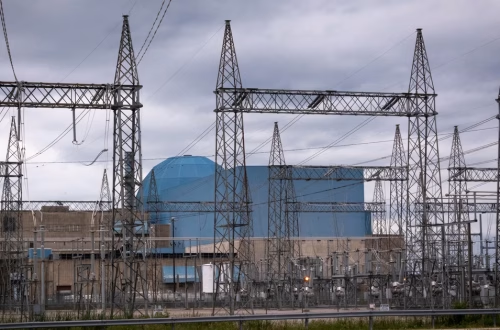Summary:
US Internet Regulation and Free Expression is a critical issue that examines how the government, corporations, and individuals balance online governance with the foundational right to free speech. The debate centers on the extent to which internet platforms should be moderated, the role of Section 230 in protecting free expression, and the potential risks of censorship. Understanding this issue matters because it affects democracy, privacy, and how information is exchanged online. Recent legislative proposals, court rulings, and political discourse highlight growing concerns about misinformation, hate speech, and digital rights as the internet becomes increasingly integral to public life.
What This Means for You:
- Potential Censorship Concerns: If regulatory measures become too restrictive, you may experience limitations on what you can post or access online. Understanding your rights under the First Amendment and Section 230 can help you advocate for digital free speech.
- Actionable Advice: Stay informed about proposed internet regulations by following legislative updates from organizations like the Electronic Frontier Foundation (EFF). Engage in public comment periods to voice concerns about restrictive policies.
- Actionable Advice: Diversify your information sources to avoid echo chambers, as biased moderation policies on social media may suppress certain viewpoints.
- Future Outlook or Warning: The future of US Internet Regulation and Free Expression remains uncertain, with ongoing Supreme Court cases and new laws like state-level social media censorship bans. Without careful balance, regulations intended to combat misinformation could inadvertently suppress legitimate discourse.
US Internet Regulation: Balancing Free Expression & Online Governance
The Legal Foundation: First Amendment and Section 230
The First Amendment protects free speech from government interference, but private companies operating digital platforms have greater leeway in moderating content. Section 230 of the Communications Decency Act (1996) shields platforms from liability for user-generated content while allowing them to enforce content policies. However, critics argue this law enables unchecked censorship or fails to prevent harmful content.
Current Political Climate
Recent debates focus on whether platforms like Twitter and Facebook overly restrict conservative voices—or, conversely, fail to adequately curb hate speech. Lawmakers have proposed reforms, including revising Section 230 or enforcing transparency in content moderation. Meanwhile, state laws like Texas’s HB 20 (2021), which restricts social media censorship, face legal battles over constitutionality.
Human Rights Implications
Internet access and free expression are increasingly recognized as human rights under international law (e.g., UN Resolution A/HRC/32/L.20). Overregulation could stifle dissent, while under-regulation risks amplifying harmful content. Privacy concerns also arise when governments mandate data collection for enforcement purposes.
Key Legal Challenges
Supreme Court cases, such as NetChoice LLC v. Paxton, test whether state-level social media laws violate the First Amendment by dictating moderation policies. Meanwhile, federal agencies like the FCC explore reinstating net neutrality rules to prevent ISPs from throttling access to certain sites.
Global Comparisons
Unlike the EU’s strict Digital Services Act, the U.S. traditionally favors minimal regulation. However, pressure mounts for stronger measures against misinformation, especially after events like the January 6 Capitol riot, where social media played a key role.
People Also Ask About:
- Does the First Amendment apply to social media? The First Amendment restricts government censorship but does not bind private platforms. However, courts are grappling with whether platforms function as public forums where free speech protections should extend.
- What is Section 230, and why is it controversial? Section 230 protects platforms from lawsuits over user content while allowing them to moderate. Critics claim it permits censorship, while supporters argue it enables free expression by preventing frivolous lawsuits.
- Can the government regulate hate speech online? The U.S. has limited hate speech laws due to strong free speech protections. Regulation focuses on incitement to violence (e.g., Brandenburg Test) rather than offensive content alone.
- How do net neutrality laws affect free speech? Without net neutrality, ISPs could block or slow access to certain websites, indirectly limiting free expression. The repeal of 2015 rules remains contentious.
Expert Opinion:
The intersection of US Internet Regulation and Free Expression presents a delicate balance between preventing harm and preserving open discourse. Experts warn that stringent content moderation may lead to over-censorship, while unchecked platforms risk amplifying extremism. Emerging technologies like AI moderation tools could both help and complicate enforcement. Future policies must prioritize transparency and user rights to maintain trust in digital spaces.
Extra Information:
- Electronic Frontier Foundation (EFF) – Free Speech: Provides updates on legal battles and advocacy efforts concerning digital rights and internet regulation.
- ACLU – Freedom of Expression: Analyzes how free speech principles apply to online platforms and government regulation.
Related Key Terms:
- Section 230 and free speech protections in the US
- First Amendment rights on social media platforms
- Internet censorship laws in the United States
- Net neutrality and freedom of expression online
- US Supreme Court cases on internet regulation
- Government oversight of digital platforms in America
*Featured image provided by Dall-E 3





